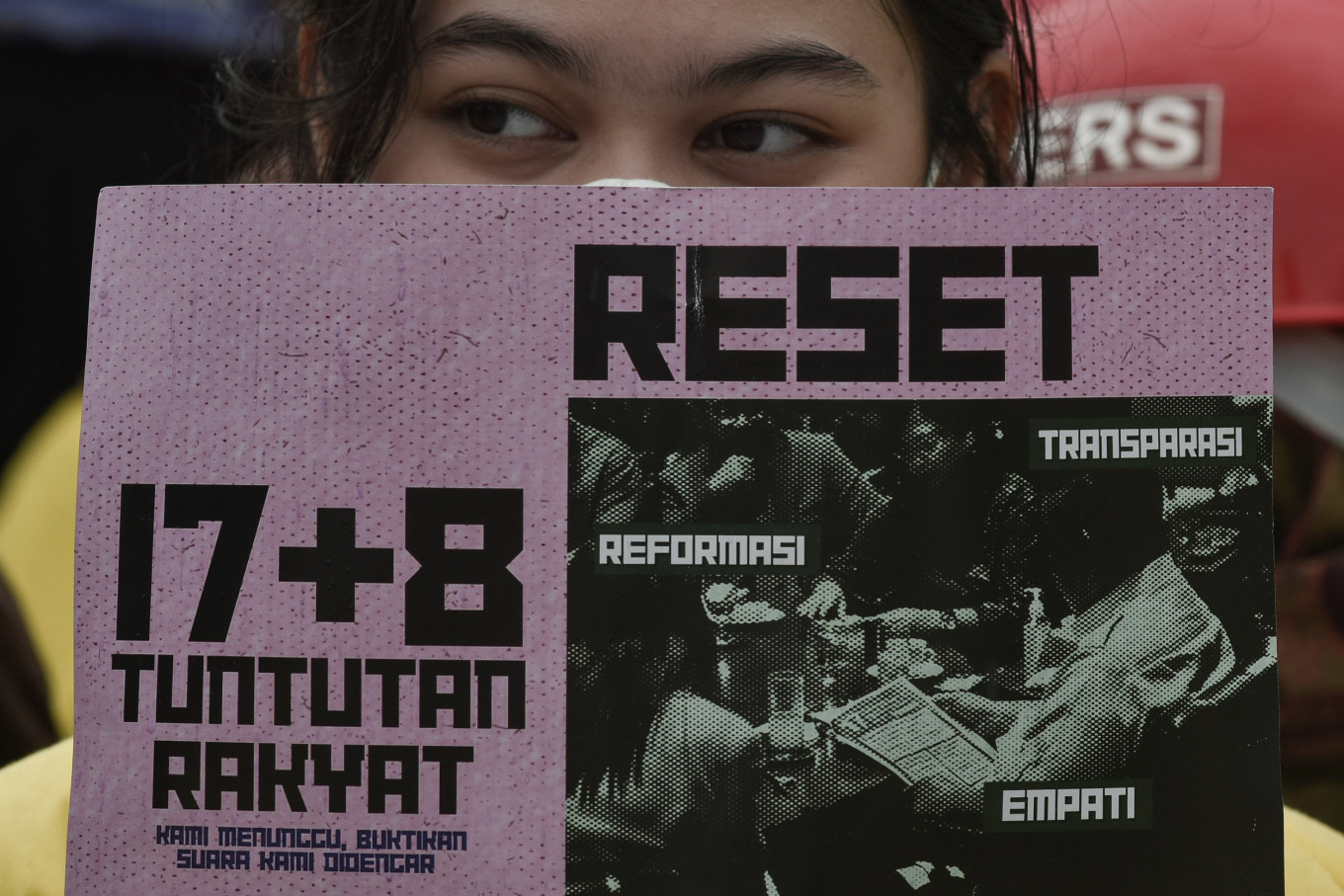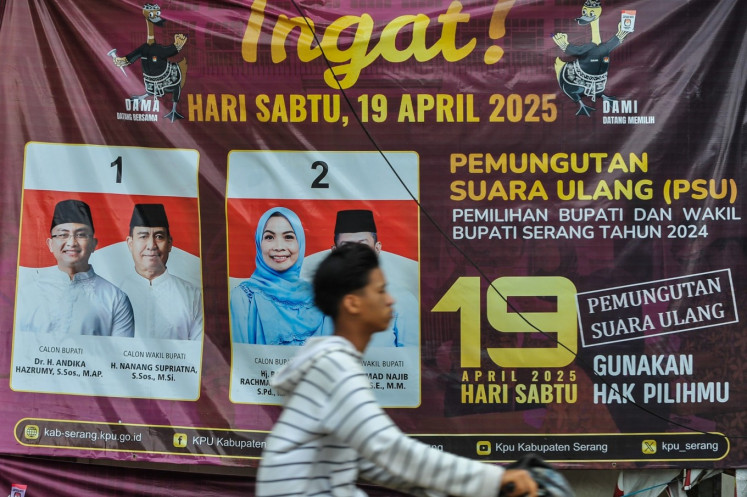Popular Reads
Top Results
Can't find what you're looking for?
View all search resultsPopular Reads
Top Results
Can't find what you're looking for?
View all search resultsBeyond the hashtags
Online mobilization may ignite public discourse, but it cannot replace the deep, patient work of organic movement-building.
Change text size
Gift Premium Articles
to Anyone
T
he wave of public protests that erupted across the archipelago in recent weeks is a jarring reminder of what happens when governments ignore festering discontent for too long.
From Jakarta to Medan, Makassar to Malang, anger over economic hardship, tone-deaf policymaking and deepening inequality has spilled onto the streets.
What began as frustration over lawmakers’ bloated housing allowances quickly evolved into a broader cry for justice, decency and state accountability, most recently embodied in the “pink and green” movement that compiled the 17+8 list of demands that went viral on social media.
But now that the hashtags have trended and some perks have been revoked, a question emerges: where do we go from here?
For all its shortcomings, this moment offers a rare chance for democratic renewal – but only if the silent majority wakes up and if those in power act in good faith.
That first condition demands much more than influencer posts or outrage in our social media timelines. The second requires that the government not mistake momentum for a nuisance.
The protests cannot be dismissed as isolated or fringe. They emerged from real anguish: skyrocketing food and fuel prices, wage stagnation, job insecurity and the widening gap between the powerful and the rest.
When citizens learned that legislators were receiving Rp 50 million (US$3,046) in new housing allowances while most people struggled to pay rent, the spark was lit.
What followed was a spontaneous public awakening; diffuse, imperfect and deeply human. It was Indonesian civil society at its most visceral.
Credit is due to the social media-savvy activists who channeled this discontent into the 17+8 Demands, a decentralized, broadly supported call for reform.
Public intellectuals with deep online reach helped give form to the outrage, as one recent interview suggests.
But influence should not be mistaken for leadership, nor virality for victory.
Online mobilization may ignite public discourse, but it cannot replace the deep, patient work of organic movement-building.
That task must still be attempted – on the ground, in communities and through broad civil society coalitions that push persistently for long-term change.
There is precedent for online sleuthing and viral justice playing a productive role.
In recent years, public outcry on social media has led to real consequences: from the exposure of lavish lifestyles by tax officials or politicians and their families, to the National Police’s apology and internal action following the death of innocent bystander Affan Kurniawan last month.
But for every case that yields justice, others stall in silence. Until those in power face real accountability – including dismissals, prosecutions and structural reforms – trust will remain fragile.
This is where the government must decide what kind of democracy it wants to lead. President Prabowo Subianto has acknowledged the public’s right to protest peacefully, citing Indonesia’s commitment to civil and political freedoms.
But his track record and his own words still breed skepticism. Just months ago, he called democracy tiring and “messy”, a telling remark that casts doubt on his commitment to open governance and the fruits of reform.
Now, with another cabinet reshuffle likely on the horizon, Prabowo has a critical opportunity to repair that credibility.
He must remove officials who have eroded public trust, starting with those who allowed or encouraged police brutality – even if the military is found to be involved.
He must demonstrate that his administration values substance over symbolism; not just revoking perks, but reforming the culture of impunity that pervades political office.
Above all, he must ensure the people’s demands are not brushed aside like so many attempts before the 17+8 list.
But the burden does not lie with the President alone. Citizens, especially those newly awakened by this movement, must now do more than watch from the sidelines or hide behind hashtags.
This moment could be a turning point – a renewal of the reform movement spirit, 27 years on. Or it could fade into memory, another footnote in our collective history of missed opportunities.
The choice, as always, is ours.










